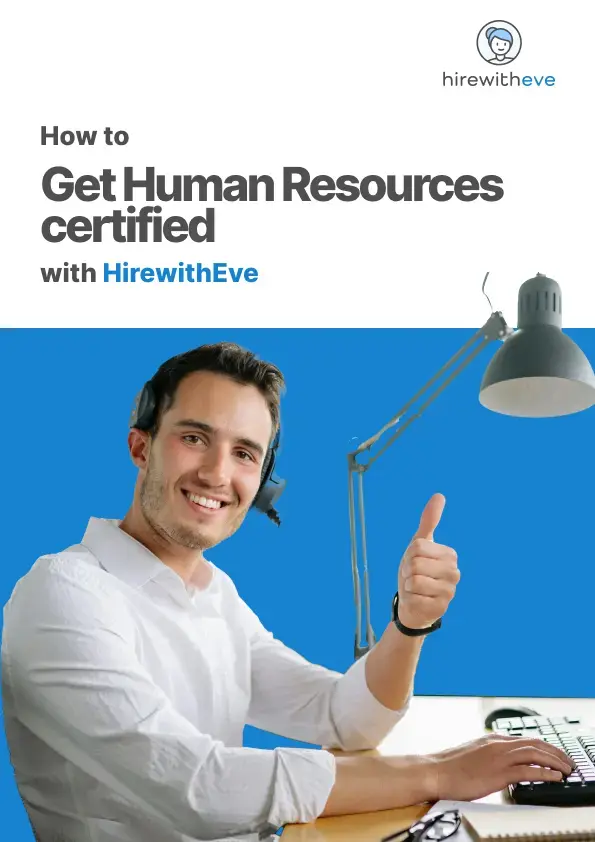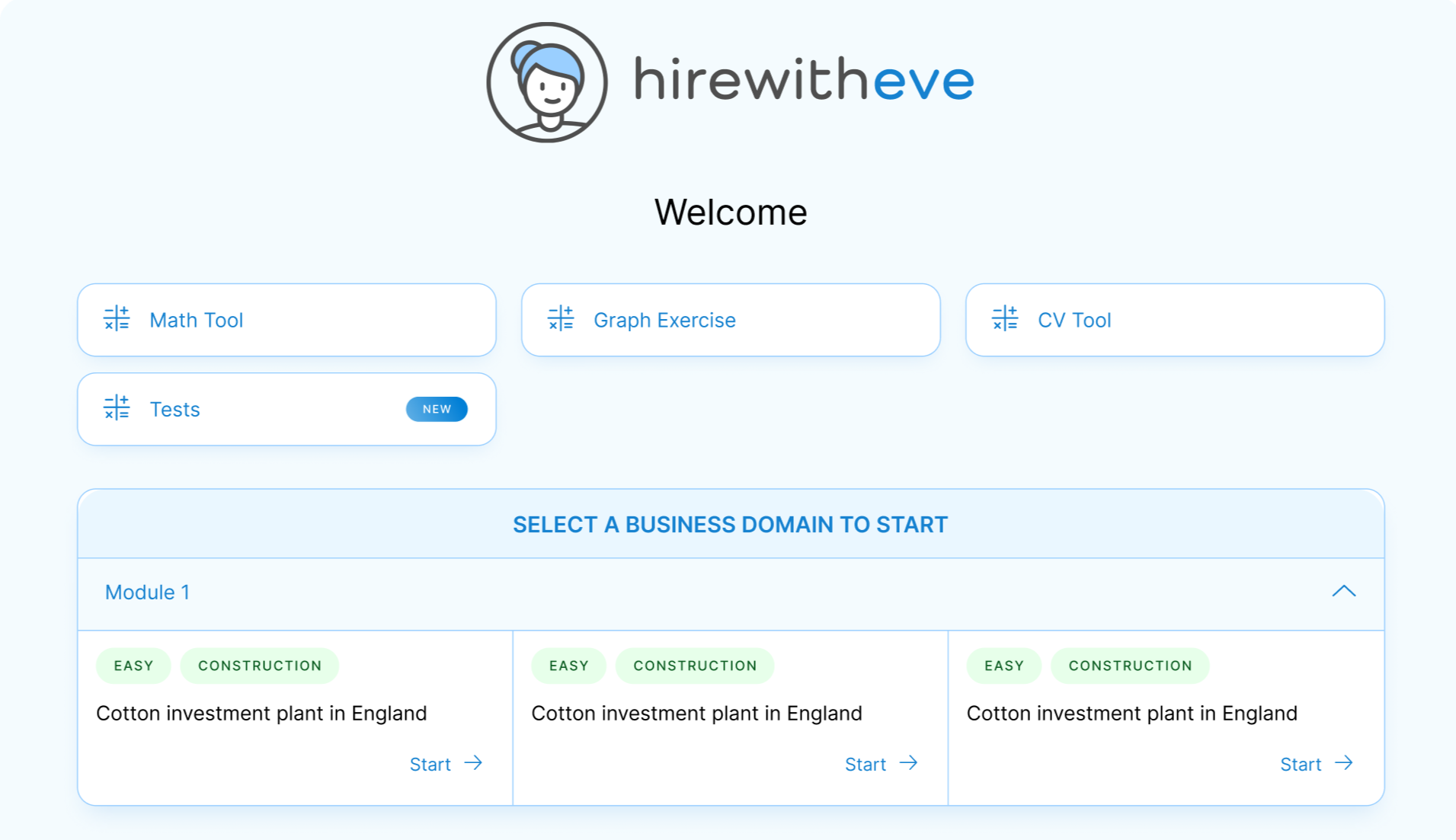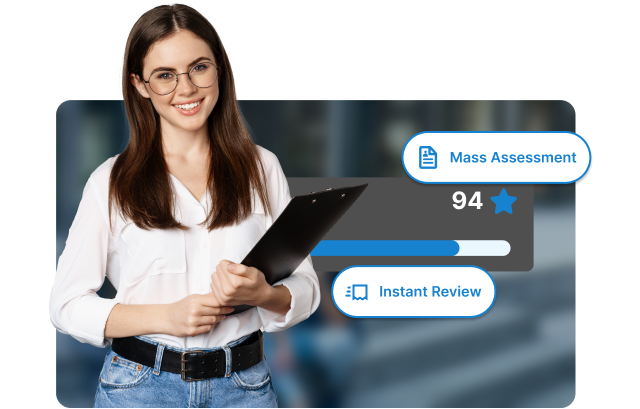9 Steps To Create an Employee Development Plan

In today’s rapidly changing business environment, creating an Employee Development Plan is essential for retaining top talent, boosting employee engagement, and ensuring long-term organizational success. As companies shift towards skills-based hiring and increasingly value continuous learning, the focus on structured employee development has never been more critical. This guide outlines nine steps to create an effective Employee Development Plan, tailored to the needs of HR managers and talent acquisition specialists who are tasked with not only hiring the best talent but also ensuring their growth within the organization.
Table of contents
Introduction
The success of any organization is closely linked to the skills and engagement of its employees. An Employee Development Plan is a structured framework that helps HR professionals and managers guide their employees' career growth while aligning individual goals with the organization’s broader objectives. A well-crafted Employee Development Plan not only fosters employee retention but also empowers individuals to expand their skills and assume leadership roles over time. This blog explores the importance of an Employee Development Plan and provides nine actionable steps to create one that drives success for both employees and the organization.
What Is an Employee Development Plan?
An Employee Development Plan is a personalized strategy that outlines specific growth goals for an employee within the organization. It’s not just about acquiring new skills but about fostering long-term career progression. Whether it’s helping employees master a new software tool, develop leadership skills, or refine communication techniques, the Employee Development Plan should be tailored to both the needs of the individual and the business.
Benefits of an Employee Development Plan
The benefits of implementing a robust Employee Development Plan are numerous:
Improved Retention: Employees who see opportunities for growth within an organization are more likely to stay.
Enhanced Productivity: Employees with clear goals and access to development resources are more motivated and productive.
Leadership Pipeline: Companies can cultivate future leaders by systematically developing employees’ skills.
Alignment With Organizational Goals: A development plan ensures that employee growth aligns with the strategic objectives of the organization.
Step 1: Assess Organizational Goals and Talent Gaps
Before creating an Employee Development Plan, HR professionals should assess their organization's long-term goals. This includes identifying talent gaps that may arise from future expansions, technological changes, or new market opportunities. For instance, if the company is transitioning towards more data-driven decision-making, it may need to develop employees' analytical skills. By assessing both current and future needs, talent acquisition specialists can ensure that the development plans are forward-looking.
Step 2: Identify Key Competencies and Skills
Once you’ve assessed organizational goals, the next step is to identify the key competencies and skills that are required to meet those goals. This can range from technical skills like coding or data analysis to soft skills like leadership and teamwork. Each Employee Development Plan should focus on developing these competencies, ensuring that employees are prepared for both current and future challenges.
Step 3: Set Specific and Measurable Goals
For an Employee Development Plan to be effective, the goals need to be specific, measurable, and time-bound. It’s important to clearly define what success looks like and set realistic timelines for achieving it. For example, if an employee’s goal is to become proficient in project management, you might set a goal for them to complete a certified course within six months and apply those skills to a live project by the end of the year.
Step 4: Collaborate With Employees to Create Individual Plans
It’s important that the Employee Development Plan is not created in isolation. Employees should have a say in their development path to ensure buy-in and motivation. HR managers should work closely with employees to understand their career aspirations and how they align with the company’s objectives. This collaboration helps in crafting a plan that is not only beneficial for the organization but also aligns with the employee’s personal growth goals.
Step 5: Provide Opportunities for Learning and Growth
An Employee Development Plan should include clear opportunities for learning and growth. This can come in various forms, including formal training programs, workshops, online courses, or on-the-job learning opportunities. Offering diverse avenues for skill development ensures that employees can choose the method that best fits their learning style and professional needs.
Step 6: Assign Mentors and Encourage Coaching
Mentorship plays a crucial role in an Employee Development Plan. Pairing employees with experienced mentors who can guide and provide feedback can significantly enhance the development process. Coaching, whether from direct supervisors or external consultants, also helps employees refine their skills and navigate challenges in real-time.
Step 7: Monitor Progress and Adjust Plans
An Employee Development Plan should be dynamic, with regular check-ins to monitor progress and adjust goals as needed. HR professionals should review development milestones, provide feedback, and update the plan to reflect any changes in the employee's role or the organization's goals.
Step 8: Recognize and Reward Achievements
Recognition and rewards are critical components of any Employee Development Plan. Employees need to feel appreciated for their progress. HR managers should implement recognition programs that highlight employee achievements and encourage continuous improvement. This could be in the form of bonuses, promotions, or public acknowledgment within the organization.
Step 9: Continuously Evolve the Development Plan
An Employee Development Plan is not a one-time effort but a continuous process. As the business landscape evolves and employee roles shift, development plans should be updated to reflect new challenges and opportunities. Keeping the plan flexible ensures that it remains relevant and effective in driving both employee and organizational growth.
Conclusion:
Creating a structured and effective Employee Development Plan is vital for both the organization and its employees. By focusing on individual growth and aligning it with organizational objectives, HR professionals can foster a culture of continuous improvement and long-term success. Whether through assessing talent gaps, setting clear goals, providing learning opportunities, or assigning mentors, each step of the Employee Development Plan ensures that employees are prepared to meet the challenges ahead.
At HirewithEve, we understand the importance of employee development in today’s competitive job market. Our platform offers tools that help HR managers and talent acquisition specialists create comprehensive Employee Development Plans, track employee progress, and align individual growth with company objectives. By leveraging data-driven insights and tailored development paths, HirewithEve ensures that your employees are empowered to grow and contribute to the company’s success. Whether it's for skills-based hiring or ongoing employee development, our platform is designed to meet the evolving needs of modern HR teams.
Target Your Talent
Unlock tailored solutions for your recruitment and hiring needs with Eve Platform's extensive case study library.
Subscribe now to enhance your HR expertise and excel in your role.
Free Resources
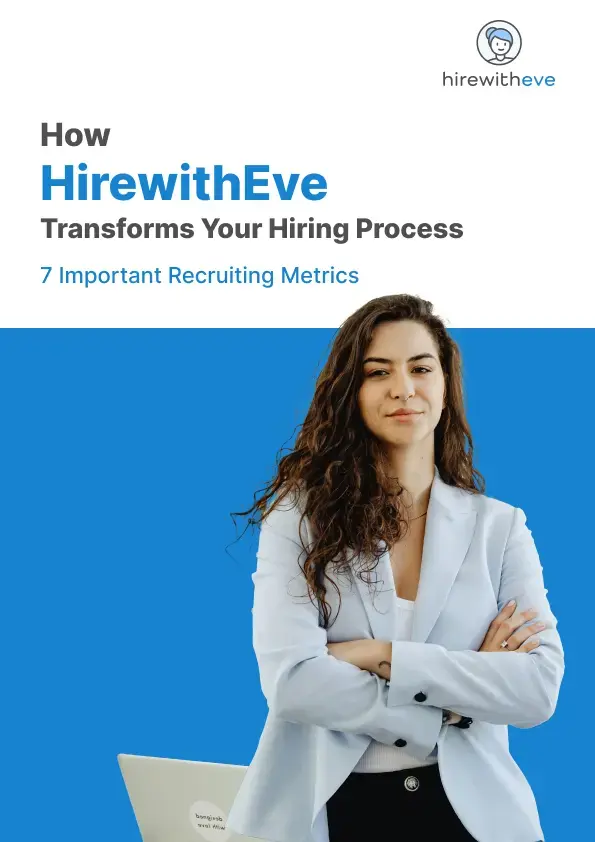
Transforming Hiring: 7 Key Recruiting Metrics
Enhancing recruitment processes with data-driven insights for better hiring outcomes.
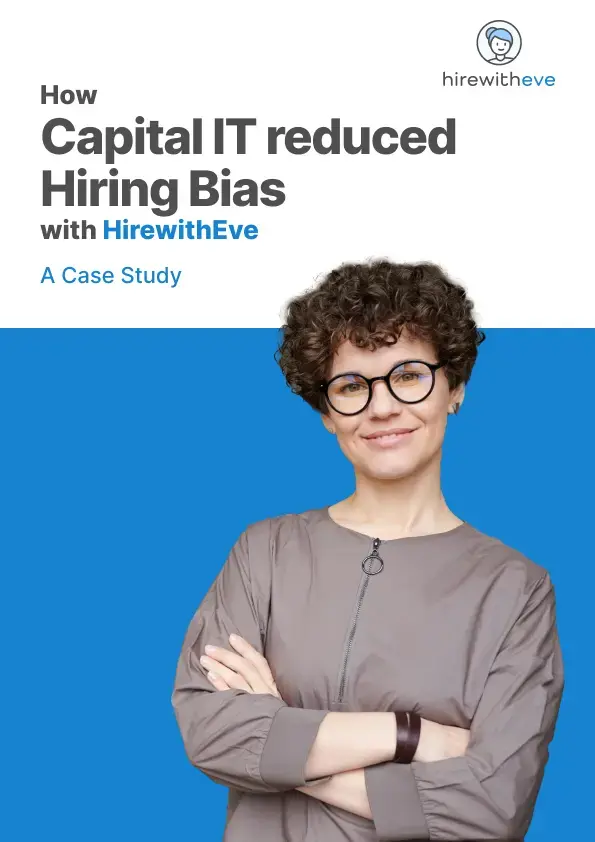
Reducing Hiring Bias with Hirewitheve.
Utilizing Hirewitheve to combat bias and streamline recruitment processes effectively.

Hiring Detail-Oriented Candidates
HirewithEve enhances hiring by accurately assessing candidate's attention to detail-oriented.
